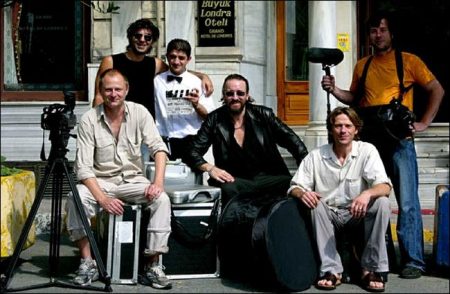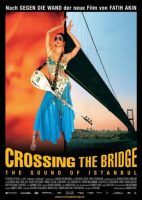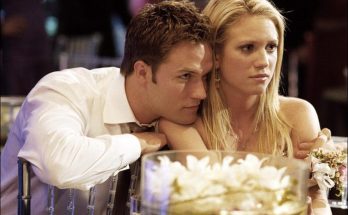A maverick in Istanbul. Alexander Hacke, a member of the German avantgarde band Einstürzende Neubauten for more than 20 years, first came into contact with the city and its music while producing the score for the movie Head-On (Gegen Die Wand). In Istanbul he met the members of the neo-psychedelic band Baba Zula.
When their bass player dropped out, he was asked to sit in for her. Alex Hacke is a collector of musical styles and loves to experiment with sound, and so it didn’t take much to persuade him. But he didn’t just bring his bass guitar, but also a complete mobile recording studio, including his “magic mike”, which he has used to capture exotic sounds from all over the world. He calls his approach to collecting sounds “street recording”, and it allows him to make professional recordings just about anywhere. And so he sets out to capture the musical diversity of Istanbul onto his hard drive. His aim is to expose western ears to the broadest possible spectrum of Turkish music, ranging from modern electronic sounds, rock and hip-hop, right down to classical “Arabesque” music.
Fatih Akin, director of Head-On, accompanies him with his camera and shoots a portrait of Istanbul’s lively music scene, whose music suffuses every part of the city, and which is dearly loved by all of its inhabitants. Hacke’s home base is the venerable Büyük Londra Oteli (Grand Hotel de Londres) in Istanbul’s district of Beyoglu, probably the most “European” spot in all of Turkey. From here he wanders through an alien, contradictory, lively, and seductive world, collecting impressions and tracks, drifting along in the unstoppable stream of this mega city of myriad facets. But no hard drive or film can do justice to the diversity and overwhelming force of musical and visual impressions this city generates. With this experience he finally returns home, a musical treasure in his baggage, which now needs to be sifted and presented to the world.
The Music
Baba Zula
For the members of the neo-psychedelic band Baba Zula – where Alex Hacke sits in as a bass player – Istanbul lies neither in the east nor in the west. In its long history the city was shaped by many ethnic influences, a development that continues to this day. And when you grow up with music from Zeki Müren and Pink Floyd – and you don’t really like either one of them – then you have no other choice but to blaze your own trail. The straight of Bosporus which divides Asia from Europe (and which was supposedly created be the deluge), suddenly becomes a metaphor for your inner conflict.
Baba Zula doesn’t really feel at home in either part of the city, and so somebody had the idea to shoot the band and its music on the river itself. One day and one night we went up and down the river with the band. It was a 24-hour happening, raking the city with sound from the deck of our boat.
Baba Zula follow in the footsteps of bands from the early `70s with a symbiosis of jazzy psychedelic rock and oriental sounds. It’s a bit similar to the German band Can, which was one of the first to use exotic influences to spice up their improvisational compositions. An ironic whiff of flower power mixed with a sample of Arabian Nights suffuses the band of Murat Ertel (guitar & e-saz) and Levent Akmann (percussion & sound effects).
Two years ago one of their albums was mixed by the witch master Mad Professor. It sold much better in Europe than in Turkey. The people in their home country don’t really know what to make of their music. Their unconventional sound and off-the-wall outfits are just a little bit too avantgarde for Turkish mainstream. The underlying irony and psychedelic swing of their music overtax the average Turkish listener. But Baba Zula are staying their course, even if this requires a detour via Europe.
Orient Expressions
In geopolitical terms, Istanbul lies at the nexus between east and west, but Orient Expressions doesn’t buy into the “clash of civilizations” theory. They believe it is an ideological myth that the orient begins in India and ends in Istanbul, whereas the occident begins in Istanbul and ends in Los Angeles, both worlds meeting in Istanbul. This myth only adds fuel to negative stereotypes. They use their musical concept to oppose this idea.
Orient Expressions are two DJ’s from Istanbul, an American saxophone player, a saz virtuoso, and a roster of changing vocal artists. Until very recently, anything to do with DJ music came from outside Turkey. But recently artists like DJ Yakuza and Murat Uncuoglu have taken over the turntables in the city, creating their own style in the process. They take the usual loops and beats and add deep, mythical sounding layers of traditional eastern Anatolian music, thus creating a sound of joyous melancholy, now beamed across the city via Radio Oxygen. The saz and the oriental percussion fuse easily with the DJ style. And when the American sax player Richard starts blowing, weaving in blues and jazz licks, it all sounds like the most natural thing in the world.
Orient Expressions represents the young and hip part of Istanbul, with all its multicultural attitudes, but without bowing to the superficial club scene. With their crossover of digital and traditional music, they easily bridge the gap to western listeners, who will recognize their style immediately. The song which is played in the movie, called “Istanbul 1:26 a.m.”, can be found on many “east/west” compilations. A song any European with superior musical taste would enjoy.
Duman
In Turkey, rock music is still an expression of rebellion. In the west, rock music became a mass phenomenon long ago, breaking up into countless styles. But in Turkey, its attitude and following resemble the guitar music of the 1970s. The best place to see this is in the district of Beyaglu: There’s probably no other place on earth where you can still see so many people with long hair. Duman has taken a large helping of punk music, too, but they are still smack in the middle of traditional “Turkish rock”. Influenced by their hippy and heavy metal parents, they founded the band when they were still very young, playing in bars as teenagers, still singing English lyrics in those days. When he reached 21, their singer moved to the grunge capital of Seattle for a few years, to see what he could do with himself. But he got homesick living in diaspora and started writing Turkish lyrics, unconsciously laying the foundation for the success the band is now enjoying in Turkey. One of their most successful songs is a hymn to their hometown Istanbul, and it lets their fans go wild whenever they play it live. It’s pure punk rock that makes you want to yell along with them, an ode to the dark side of the metropolis.
Replikas
The Replikas play rock of the more sophisticated kind, guitar music with an intellectual touch. The members of the band hail from an upper middle-class background, and grew up no different from their peers in Europe. Their lives were dominated by western values, and their own cultural background more or less ignored. They only started to develop a sense of their own roots when they reached their twenties. This awakening created a new sense of identity upon which their music is founded.
Apart from the lyrics, the oriental influence is hard to detect at first glance. Their sound is shaped by many different styles, but the Turkish identity is hidden below the surface. As an experimental band, the Replikas adore the Einstürzende Neubauten, Alex Hacke’s band. As soon as they found out that he was in town, they simply had to work with him.
The music club Babylon was just being renovated, and so they turned the empty space into an impromptu studio. The Babylon belongs to the empire of the music label Doublemoon, the leading producer and distributor of contemporary music in Turkey.
Erkin Koray
Up until 15 years ago, concerned defenders of Turkish culture held conferences on whether Turkish rock music was possible. Erkin Koray had already proven the case in the 1960s. When he appeared on the scene, he was one of the first to play Turkish music on electrically amplified instruments. On the other hand, he also covered Beatles and Stones songs on traditional Turkish instruments, presenting himself as a maverick and provocateur in public. That raised quite a few eyebrows in those days, as such behavior was considered an expression of western decadence. But Erkin Koray kept on, kicking off the beat era and rattling the foundations of Turkish culture. Today he is respected as a forerunner who opened the door to a new understanding of music. In the meantime, the guitar hero has passed the age of 60, but he still emanates the serious stubbornness of an outsider who stays alone in his revolt, which seems more and more anachronistic as the years go by. And yet, Erkin Koray is not “out”. Even for the twenty-year olds he is still “Erkin-Baba”. The kids in front of the stage – who could easily be his grandchildren – sing along to all his lyrics.
Ceza
On the Asian side of the city, opposite the Golden Horn, lies the district of Kadiköy. Together with Bakirköy, it is the stronghold of hip-hop music in Istanbul. Those who cross the Bosporus expecting to find a dilapidated social hotspot, in which a new youth culture has gained a foothold, will be disappointed. It’s more like a spruce neighborhood with small town flair and great expanding views of the Marmara Sea, and in the middle of it there is a hip T-shirt store with a tatoo parlor in the basement. That’s home base for Ceza (“the punishment”), the Turkish version of Public Enemy, and his entourage. A very serious young man, Ceza has no use for the poses and fake attitudes of American “gangsta rappers”. He rattles off his rhymes in an awesome staccato style, as if he swallowed an Ak-47, sounding like a preacher on speed. Using the entertainment value of hip-hop, his aim is to get across his social and political views, based on his life and psychological state of mind. The ideal of friendship plays a central role in his philosophy, and the people who surround him he considers family. But he keeps a very special channel open to his sister, his female counterpart and also a rap artist, who tries to break into the male-dominated world of rap music.
Istanbul Style Breakers
Whereas the Kadiköy gang sees itself as a circle of friends, the scene in Bakirköy considers itself underground. This district is less central and mostly populated by people from Anatolia. The Istanbul Style Breakers is a loose community of teenagers whose passion is breakdance. They show off their artistic moves in clubs and on the streets. Their mission is to teach their peers the blessings of physical and mental fitness, and to keep them away from drugs and other destructive influences.
Mercan Dede
The digital derwish Mercan Dede is currently one of the most popular artists in the world music scene. Like no other Turkish musician, he manages to fuse modern clubsounds with traditional sufi music. While he is just as skillful with his reed pipe, as he is with his soundmachines and computers, Mercan Dede also has an infallible feeling for the virtuosity and sound of the musicians who accompany him. The ensemble he took on a world tour in 2004 consists of individual artists he has gradually surrounded himself with over the years. His clarinet player is a 16-year-old gypsy, who would have delighted the likes of Benny Goodman and Ornette Coleman.
When he was a child, Merc an Dede one day was on a trip home in a communal cab (Dolmus), when he suddenly heard the most wonderful kind of music. It was the sound of a bamboo pipe called “ney” which enchanted him – and he just had to learn how to play it. They say it takes one year of practice before one learns to coax a clean note from the instrument. The “ney” plays an important role in Sufism. Sufism more resembles a kind of philosophy than religion, and it is based on the equal virtues of transparency and tolerance. Sufism teaches that all questions and answers of being can be found in the heart of every living person. This attitude to life is the basis of Mercan Dede’s music, which is influenced by Asian philosophy with a Turkish touch, mixing electronic and underground sounds.
Another element of Sufism is the dance of the derwish. The dancers whirl with raised arms, until they achieve a kind of trance, a state of emptiness leading the dancers back to their inner core. In Turkey these rituals are mostly celebrated for tourists any more; none of the once numerous sufi monasteries are still in use. When the “Whirling Derwishes” dash across the stage during Mercan Dede’s performances, this is not just some exotic show effect. It is also an expression of his desire to keep a valuable cultural practice alive in these times of cultural indeterminacy.
Selim Sesler
There are people who are born musicians. At some point in their childhood they lay their hands on an instrument and they invariably become masters. Selim Sesler is one of those people, and his instrument is the clarinet. Selim is a gypsy who comes from “Kesan”, a small, barren city in “Thrakia”, which lies in the European part of Turkey, roughly 250 kilometers west of Istanbul. From here he set out to become a highly respected virtuoso who has carried the music of his home out into the world and onto many recordings. And so he is received like a hero, whenever he returns home.
So let’s leave the big city behind and follow a musician back to his roots. In “Kesan” we join a “Fasil”, a traditional congregation of men to drink and play music in a bar. The music they play here will make every jazz fan’s heart beat faster, which is why this session will be recorded on separate tracks and recorded for posterity. Selim leads us to the neighborhood he grew up in, and we witness a gypsy wedding on the streets at night. We have finally arrived on a different planet, a world where the bride wears black. We see faces, especially those of children, which would soften up the hearts of the most hard-boiled characters among us. The slightly off-tune and reverberating sound of the wedding band still haunts us long after we have returned to the big city. No big surprise, since many gypsies live in Istanbul, mostly in a ghetto called “Tarlabase”, where Selim also lives.
When he came to the city 18 years ago, he played in restaurants and cafés for a handful of lira. But the resentments of society against gypsies have gradually subsided, not the least because the Turks have re-discovered their passion for traditional music. And so Selim Sesler was discovered by Istanbul’s upper class bohemians, and his music is finally receiving the respect it deserves.
Brenna McBrinnon
The Canadian folk singer Brenna MacCrimmonB carries Istanbul under her skin. She lived there for a few years, and she speaks and sings perfect Turkish. Her deep love of the pain and joy of Turkish music led her to become a renowned artist in Turkey.
It all began with a tape a friend gave her, with music from the 1950s and `60s, played by Turkish musicians from Bulgaria. She took the opportunity of a short tour in Bulgaria to do some research on the taped music that had fascinated her so much. She traveled around asking people in the village for their old music albums. And indeed, many would rummage through their homes and find old singles for her.
There were some real treasures among them, hidden below thick layers of dust. Brenna wanted to bring them back to light, to re-record this forgotten music and found a congenial partner in Selim Sesler. Together they published a CD which created a big stir. The people were both ashamed and happy for a young woman to come from distant Canada, dig up old, forgotten songs, and even sing them in Turkish. What’s more, she valued parts of their culture they had seemingly just disappeared long ago. Meanwhile Brenda lives in Canada again, but she admits that whenever she returns to Istanbul, it feels like home.
Siyasiyabend
Siyasiya is not a band, as the name might suggest (Siyasibend is the name of a mesopotamian national hero). They are much rather a gang of underdogs, whose passion is street music. Their stage is in the alleys, pedestrian zones and public squares of Beyoglu, and whoever passes by is their audience. What they do is not so much about making a living; it is not so important how much change winds up in the open guitar case. Their mission is to shake people out of their lethargy, to protest and disseminate their vision of a better and more just world. Out on the streets they can reach just about everyone, from kids sniffing glue right up to junior managers. They want to level the playing field in a society full of conflict; out on street level we can all see eye-to-eye.
They are proud to be able to create such encounters. Siyasibend refuse the mechanisms of consumer society and are led by a street romanticism, even if the dirt destroys them. Their music changes like their mood, sometimes it is a kind of rock jazz, sometimes oriental folklore, and sometimes they sing protest songs which let their singer Bison sound like a Turkish Bob Dylan. Siyasibend are pure subculture and a thorn in the side of the police. They have been driven out from all neighborhoods, until they found a place around Tünel square, amongst students and tourists, where they are left alone. Drugs are involved, of course, and they lead a life on razor’s edge. But the belief that music can change the world carries them through their daily struggle for survival. Much of society despises them as parasites, refusing to see their talent. As a result they have no other choice but to continue playing their music against all odds.
Aynur
Not too long ago, it was still forbidden for Kurdish and other ethnic minorities to spread their language and culture in Turkey. The paranoid Turkish state feared cultural infiltration and separatism, and as a consequence especially the Kurds had to preserve their identity in secret, the paranoia almost leading to civil war in Kurdistan itself. This kind of absurd discrimination and persecution with the ultimate aim of eradicating all differences in a multiethnic society is a thing of the past. Yet it is shameful that it was not inner conviction which has lead Turkey on a path towards liberalization, but it was merely the result of forced political overtures made towards the European Union.
The singer and musician Aynur uses these new liberties to present the traditions of her people with much self-confidence. She lends a modern face to age-old Kurdish music. Her songs are epic stories and lamentations of a suppressed people and an expression of lived-through pain, a sort of oriental gospel music. The music is called “Dengbejen”, shaped by Arabic, Mesopotamian and even Jewish influences.
Aynur’s voice has a clarity and power that cuts right to the bone. To create the right visual and acoustic atmosphere, Alex Hacke decided to cut her tracks in a Turkish bath. The dome of the “Hamam” gives her voice a sacred character and almost hypnotic reverb, turning her music into a spiritual experience.
Like so many others in the last two decades, Aynur and her family came to Istanbul from Kurdistan. In her childhood the Kurdish language was officially forbidden. During the process of assimilation, many children of emigrants forgot their mother tongue. Her music allows Aynur to re-discover her language and identity. Artists like Aynur are an embodiment of a new Kurdish self-confidence in Turkey.
Orhan Gencebay
Orhan Gencebay belongs to the greatest stars in Turkey. He is the Elvis of Arabesque music, the hero of cab drivers, the popular icon. He has sold millions of albums since the 1960s and was a popular screen actor when the Turkish film industry was still flourishing. His instrument is the long-necked lute called “saz”, and he has a whole collection of them. The biggest one he used to compose all his songs carries his name. She is a part of him, his mystery. He is a true virtuoso on the instrument; nobody has developed Arabesque music as intensely as Orhan Gencebay on his saz.
When Turkish music was forbidden on the radio in 1934, the Islamic population listened to Arabic radio stations. Hence Turkish music was strongly influenced by Arabic culture, and the term “Arabesque” was coined. Later, Orhan Gencebay strongly helped to develop this trend. He is not a performer and has never played live. He focused on researching popular, artistic, and oriental music, fine-tuning old songs and looking for new structures. He is a perfectionist, a gourmet chef in the musical kitchen.
But while he thought that he was doing a service to his culture, conservative intellectuals appeared on the scene and accused him of being a traitor to their cultural heritage. And so the term Arabesque received a negative tinge. Orhan Gencebay feel misunderstood until this very day. He is far more than just a popular singer, and he feels that his true talent has never been fully appreciated. Meanwhile he is yearning for immediate contact to his audience, which is why he finally agreed to a live recording in his office with Alex Hacke. He is accompanied by two percussionists, acoustic bass, and keyboards. For all its oriental tonality, to the western ear it sounds mostly like: jazz!
Müzeyyen Senar
Müzeyyen Senar claims to be one of the last of her kind. She and her voice are 86 years old. Born in a village, she came to Istanbul when she was ten years old, growing up in Üsküdar, in the shadows of the bridge on the Asian side of town. She stuttered as a child, but found refuge in singing. She was discovered and had her first stage appearance in 1933, recording her first album later in the same year. She became a radio star, went out with Atatürk in the 1930s, and was loved by the upper classes in the 1940s, especially in Beyoglu, when it was still known as the French quarter. Old pictures of the times show a city that was très chic, resembling any other western metropolis. Those are images of times long forgotten, a fact much lamented by the former grand dame.
The more Turkey became Americanized, the more Müzeyyen Senar and her classical oriental salon music were pushed to the fringes by an ever-expanding pop culture. She had her last stage performance in 1983, disappearing from public consciousness soon after. The state was always suspicious of her bohemian credo, so it was only as a senior citizen that she received the official recognition as state artist. However, Müzeyyen Senar does not enjoy the limitations of nostalgia, and with agile charm she fights against the dust which has collected on the memories of an era.
Thanks to the efforts of Sezen Aksu she has not been completely forgotten. She continues to ask the grand dame to join her on stage, presenting her as her musical mother. It is also due to Sezen Aksu and her team that she could be filmed and recorded for this documentary, which will contribute to the preservation of her memory. They put together an eight-man orchestra for the occasion, with an average age of 75 plus. Alex Hacke did not have enough microphones at first record the unique performance of Müzeyyen Senar and her multi-voiced orchestra in the foyer of the Büyük Londra Hotel – and so he had to organize a whole cartload more.
Sezen Aksu
They call Sezen Aksu the voice of Istanbul. Her voice resonates among people of all social levels and ages. Even in far away Germany many a lovesick emigrant child has cried herself to sleep listening to her songs. Since the beginning of her career in the 1970s she has been venerated like a goddess, and she is well known far beyond the Turkish border. It must be the way she sings, the way she infuses every word in her songs with deep emotions, to express their hidden soul.
She has sung and composed many songs about Istanbul. In “Istanbul Hatirasi” (Memories of Istanbul) she sings about an old Instanbul she never experienced herself. The expressive black and white photos of Ara Güler, who was the leading chroniclers of the city in the middle of last century, are a fitting visual backdrop for the music.
It took many attempts and meetings with her entourage, until the Diva was finally ready to record the song for us. Alex Hacke insisted on a simple arrangement, where Sezen Aksu is accompanied by himself on a semi-acoustic “Gretsch” guitar and a “Fender Rhodes” electric piano.
Crossing the Bridge: The Sound of Istanbul )2006)
Directed by: Fatih Akin
Starring: Alexander Hacke, Baba Zula, Orient Expressions, Duman, Replikas, Erkin Koray, Ceza, Mercan Dede, Orhan Gencebay, Müzeyyen Senar, Sezen Aksu
Screenplay by: Fatih Akin
Cinematography by: Hervé Dieu
Film Editing by: Andrew Bird
MPAA Rating: None.
Distributed by: Strand Releasing
Release Date: June 9, 2006
Visits: 35




